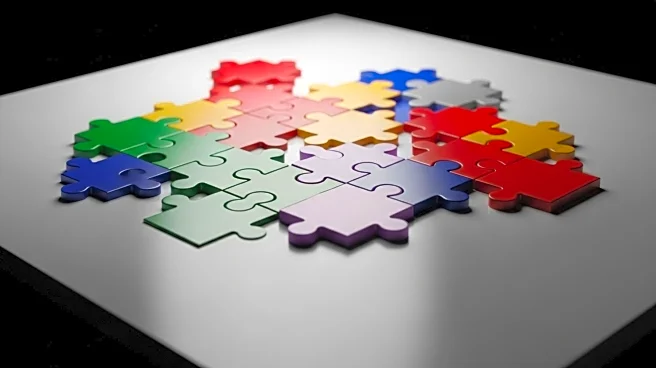What's Happening?
The New York Times has introduced a new daily puzzle called Connections Sports Edition, designed for sports enthusiasts who enjoy word games. This puzzle is a collaboration between The New York Times and The Athletic, and it follows the format of the regular Connections puzzle. Each day, players are tasked with grouping 16 words into four categories, each containing four words that share a common theme. The puzzle resets daily at 12 a.m. EST, providing fresh challenges for players. The categories for the September 2, 2025 edition include 'Money Made,' 'NHL Teams, Familiarly,' 'EFL Championship Clubs,' and 'Home Runs.' This new version aims to engage sports fans by incorporating sports-specific terms and themes into the word puzzle format.
Why It's Important?
The launch of Connections Sports Edition by The New York Times represents a strategic move to expand its audience by tapping into the sports community. By partnering with The Athletic, the publication is leveraging its sports expertise to create content that appeals to sports fans who are also interested in word games. This initiative could increase engagement and subscription rates among sports enthusiasts, providing The New York Times with a broader demographic reach. Additionally, it highlights the growing trend of media companies diversifying their offerings to include interactive content, which can enhance user experience and loyalty.
What's Next?
As the Connections Sports Edition gains traction, The New York Times may explore further collaborations with sports organizations or expand the puzzle to include more diverse sports categories. Feedback from users could lead to adjustments in the puzzle's format or difficulty level to better cater to the audience's preferences. The success of this puzzle could also inspire other media outlets to develop similar interactive content, potentially leading to a competitive landscape in the realm of sports-themed word games.
Beyond the Headlines
The introduction of Connections Sports Edition may have implications for the cultural integration of sports into everyday activities, such as puzzles and games. It reflects a broader societal trend where sports are not only consumed through traditional media but are also becoming a part of leisure activities that engage the mind. This could contribute to a deeper appreciation of sports terminology and history among the general public, fostering a more informed and engaged sports community.










